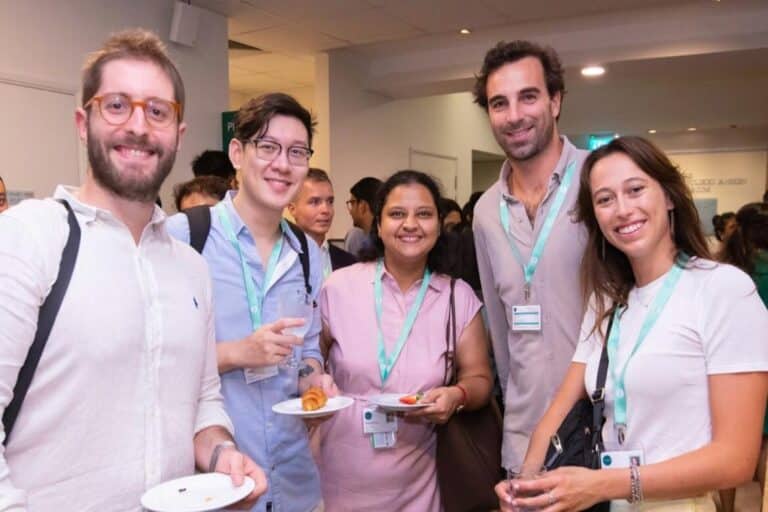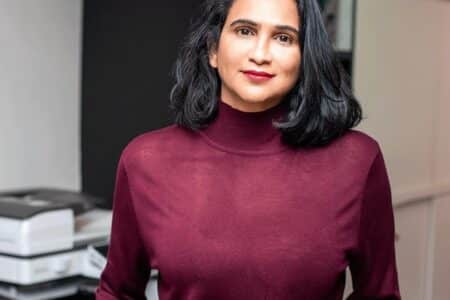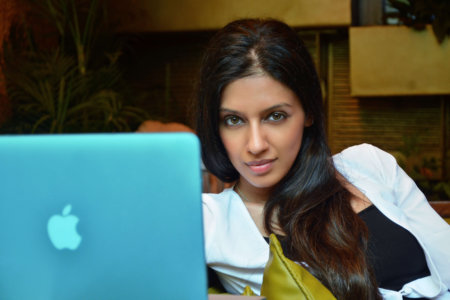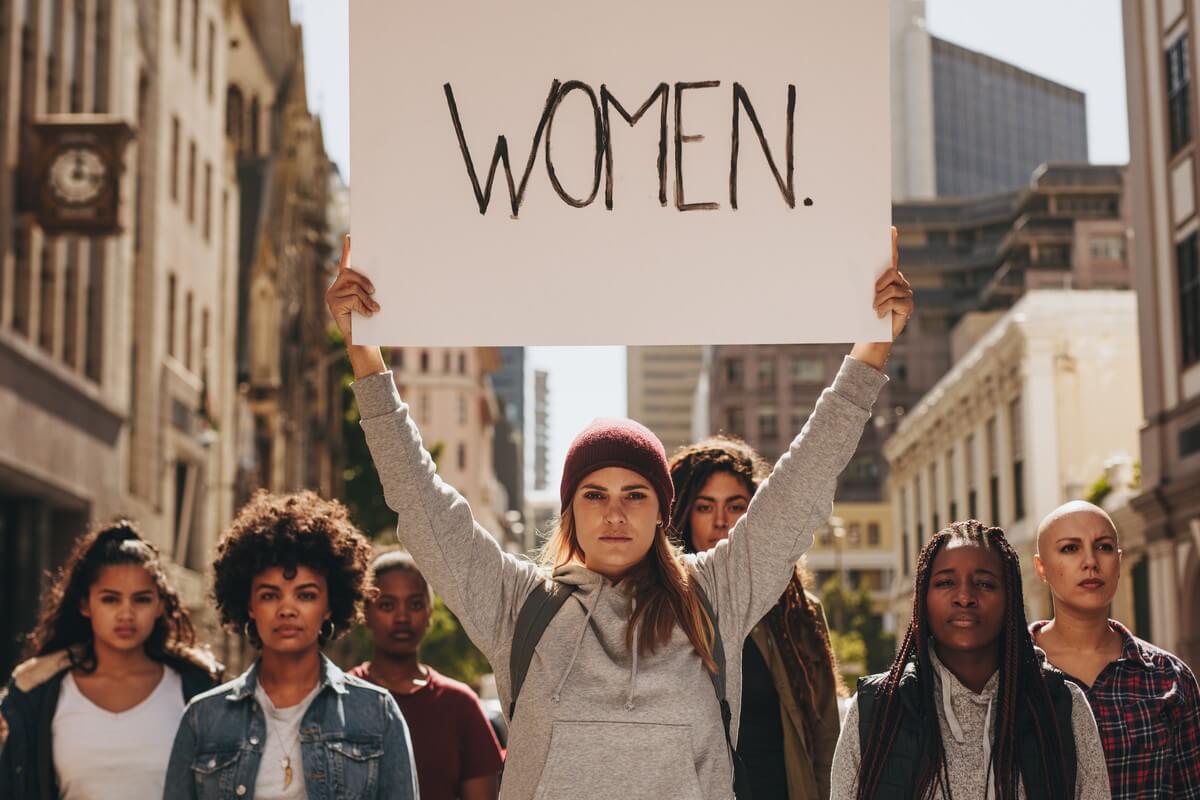
Nancy Mittal was determined to pursue an MBA. Little would deter her — not even a pregnancy, the backlash from her family, or high tuition fees.
Hailing from a small town in India, Mittal was born into a family where preference was always given to her brother and his education.
“I didn’t get the same opportunities to get the required training or go to the school that I really wanted to go to,” she says. “I felt like I was constantly fighting for what I wanted.”
Despite this, Mittal would go on to earn an MSc in Civil Engineering from the National University of Singapore (NUS).
When she found herself with some free time during her maternity leave, she decided to use that as an opportunity to prepare for the GMAT exam.
Business schools use GMAT scores to assess an applicant’s readiness for advanced quantitative and analytical work that are required in a graduate programme.
Mittal did well enough to get into one of the world’s most prestigious business schools.
“Today, I am proud to share that there is no one else in my family that has gone abroad for studies or settled down overseas without any financial help from the family,” she says.
We caught up with Mittal to learn more about her MBA at INSEAD and how she overcame society’s expectations of women and advanced education:

Mittal decided to pursue an MBA just three weeks after the birth of her son. Source: Nancy Mittal
Why did you decide to make a career change from engineering to business, and why did you choose to pursue an MBA at INSEAD?
I did an undergrad in India, and I have a Master of Science in Civil Engineering from NUS Singapore. Right after, I began working for a company where I was doing construction for the Mass Rapid Transit (MRT). I was involved from the first day of the project up until it went public.
I have seen how things work in an engineering firm at the ground level. I wanted to climb up the ladder and see how I could make more of an impact. I believed that could be done by obtaining business skills. So, that is when I decided to do an MBA.
I chose INSEAD not only for its world-class MBA but also because it emphasises diversity which I value. It has the best brains around the world grouped together in one room.
That is what really attracted me to INSEAD. So much so that it was the only school I applied to.
You mentioned facing resistance from your family when pursuing education and career opportunities. How did you overcome these obstacles?
I started my GMAT preparation to get into Business School for my MBA when my son was only three weeks old, so my family members, including my parents, were against me. They asked me, “Why are you doing this to yourself?”
They said my main focus should be on my child and raising my child rather than my career. To them, my duty was only to my child, but I was determined to do an MBA and progress in my life.
So I would schedule my coaching so that when my son goes to sleep, I won’t take breaks. I would use the time to prepare for my GMAT.
Even then, I didn’t ask my parents for any financial help. They were still against me doing an MBA at that point.
Eventually, I asked my uncles whose kids had done an MBA to speak to my parents and explain to them the significance of an MBA and how it can change your life, your perspective and how it will be important for me and my future family.
That’s when they started to mellow down. The real change happened when I showed them my acceptance letter and told them about INSEAD. I brought them to the campus and showed them what it is like, the people there and how they teach us.
And they were speechless. That’s when they told me that they were proud of me.
It was a huge moment for me because it was the first time my father said that to me. I was actually happier then than when I got the acceptance letter from INSEAD.

The decision to pursue an MBA at INSEAD was easy for Mittal. Source: Nancy Mittal
How did your upbringing shape your determination and resilience, particularly when it comes to familial expectations of women and their education?
My upbringing played a big role because since young, I have been suppressed, and I was not given a fair chance or an equal opportunity as my brother.
For me, it was “Get a bachelor’s degree, get married, have kids then you have done what you are supposed to do in life.”
But I had seen my mother, who also had her own ambitions and was suppressed. I saw how she was suffering inside, and I told myself I was not going to live like this.
I wanted to prove that my life was not just meant to raise kids and do household chores. I wanted to do something I wanted.
What strategies did you adopt to achieve financial freedom and establish yourself professionally over the years?
Before pursuing my MBA at INSEAD, I was working for eight years. In the initial years of working, I had to use my salary to pay back the loan for my previous education.
I used to save up a lot and didn’t spend much. I just used to have a minimum of whatever I needed for my livelihood. I also made some investments to make some extra money.
But the one thing that helped me is the generous scholarships that INSEAD offers. So that really helped me to cover my fees and I used my savings to cover the rest.

Mittal’s journey to pursue an MBA is an inspiration to many. Source: Nancy Mittal
How has your experience at INSEAD impacted your perspective on gender equality and diversity in business and society?
Having studied in the top engineering schools in India and Singapore, I thought, “How different could it be at INSEAD?”
But when I came to INSEAD, I was totally amazed. The quality of the people at INSEAD and the class discussions were so rich, and I am proud to say I was learning from my peers.
The diversity also helped a lot. We had people from Asia, Europe and the US all talking about the same point, but they all had different perspectives.
I never had that feeling before. Being able to look at one problem from different angles. That was a “wow” moment for me.
I would never miss any classes. Not just because the professors were good but because of the class discussions we would have.
I now have a better appreciation and deep understanding of what gender equality and diversity really are and how they can influence you and society as a whole.
If you had talked to me last year, I was a completely different person. I now try to look at things from a deeper perspective. If something happens, I now ask myself, “Why is this happening?”
I have also implemented this in my marriage. If I have a disagreement with my husband, I ask myself, “What happened?” or “What went wrong?”
I analyse what went wrong and how we can overcome this so that it doesn’t happen again next time.
From INSEAD, I am more capable in my personal life as well. Usually, when pursuing your MBA, your stress levels can increase, and this can cause friction in your personal life because you cannot give enough time to a relationship.
But I think I have learned how to survive and better manage my relationships well, not just in business.

Nancy Mittal decided to make the switch and pursue an MBA after a career in engineering. Source: Nancy Mittal
What advice would you give other international female students who want to walk the same path as you did?
I would tell them to believe in themselves. There will always be people out there who will tell you that you are incapable of doing something or that this line of work is not meant for you but don’t listen to them.
Just believe in yourself and know that you have the potential to achieve anything you desire. With determination and faith, you can achieve anything you want.










